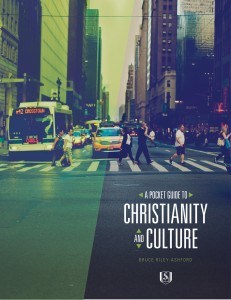The former Soviet Union is the first place that caused me to grapple with the profoundly cultural nature of the Christian life. The year was 1998. I was in my early twenties and had moved to Kazan, Russia, for two years to teach at several universities and to share the gospel as often as possible.
I was immersed in a cultural context that was a mixture of Eastern European and Central Asian, and which had been shaped in various ways in the past by Sunni Islam and Soviet communism, and more recently by global capitalism and postmodernism. These religious and ideological influences shaped everything in the culture, including the arts, sciences, politics, economic, education, entertainment, family life and even sports competitions. I was forced to think carefully about what it meant for me to live a faithfully Christian life in that particular context.
In the years that followed, I taught or ministered in a number of other contexts.
- In the United Arab Emirates, I encountered an extremely wealthy Arab society underpinned not only by Sunni Islam but by advanced capitalism.
- In Indonesia, I experienced a Southeast Asian society characterized by its unique combination of animism and Sunni Islam.
- In China, I spent time with citizens who were part of one of the most ancient cultures in the world, mesmerizing in its complexity, and influenced by Confucianism, Buddhism, Marxism and Christianity.
- Arriving in India, I found myself in the midst of a society whose culture was every bit as complex as China’s, and even more religiously diverse, as it is the home to millions of Hindus, Sikhs, Muslims and Christians.
Each of these countries had its own fascinating combination of cultures and sub-cultures. Each had its own forms of art and architecture, scholarship and education, politics and economics, business and entrepreneurship. Each had its own music, its own culinary traditions, its own family and community traditions. Each was a mixed bag of “good” and “bad,” as each society produces culture in ways that are warped and distorted by sin and idolatry. Most importantly of all, each cultural context was ripe for Christian ministry and mission. Every single society and culture — bar none — holds forth the potential to receive Jesus Christ and his gospel, and to be transformed by him.
Your theology of culture is the difference between genuine gospel mission and cultural imperialism.
That is good news, because Jesus’ parting words formed an imperative for his followers to make disciples everywhere they went, to all of the nations, even to the ends of the earth! In Matthew’s Gospel, we are told that Jesus said, “Go therefore and make disciples of all the nations, baptizing them in the name of the Father and of the Son and of the Holy Spirit, teaching them to observe all things that I have commanded you” (Matthew 28:19-20, nkjv). Even though thousands of years have passed, Christians today have that same mission, a mission that is necessarily accomplished at the intersection of gospel, church, and culture.
While the evangelical church has given substantial theological treatments of gospel and church, it has not given equal theological treatment of the concept of culture. This oversight is unfortunate, because what you believe about culture and how well you understand your cultural context will affect the way you communicate the gospel and live out your Christian faith.
Your theology of culture is the difference between genuine gospel mission and cultural imperialism. Culture is not only an academic matter but also a practical one — what you believe about culture will shape everything you do. In academic circles, questions tend to center on how to define culture and how to analyze it. In the church and on the mission field, questions often involve how to communicate the gospel across cultures, how the church expresses itself in culture and what posture Christians have towards their surrounding culture. We need pastors and missionaries (and laity) that can do both well.
What you believe about culture will shape everything you do.
 That’s why I wrote my new e-book, A Pocket Guide to Christianity and Culture. It provides you with a theological introduction to the most foundational issues at the intersection of mission and culture.
That’s why I wrote my new e-book, A Pocket Guide to Christianity and Culture. It provides you with a theological introduction to the most foundational issues at the intersection of mission and culture.
Most importantly, you can get it for FREE. Simply sign up for the weekly Intersect newsletter, and you’ll have the e-book on your screen in minutes.
Image Credit: TY-214, Wikimedia Commons





No comments have been added.